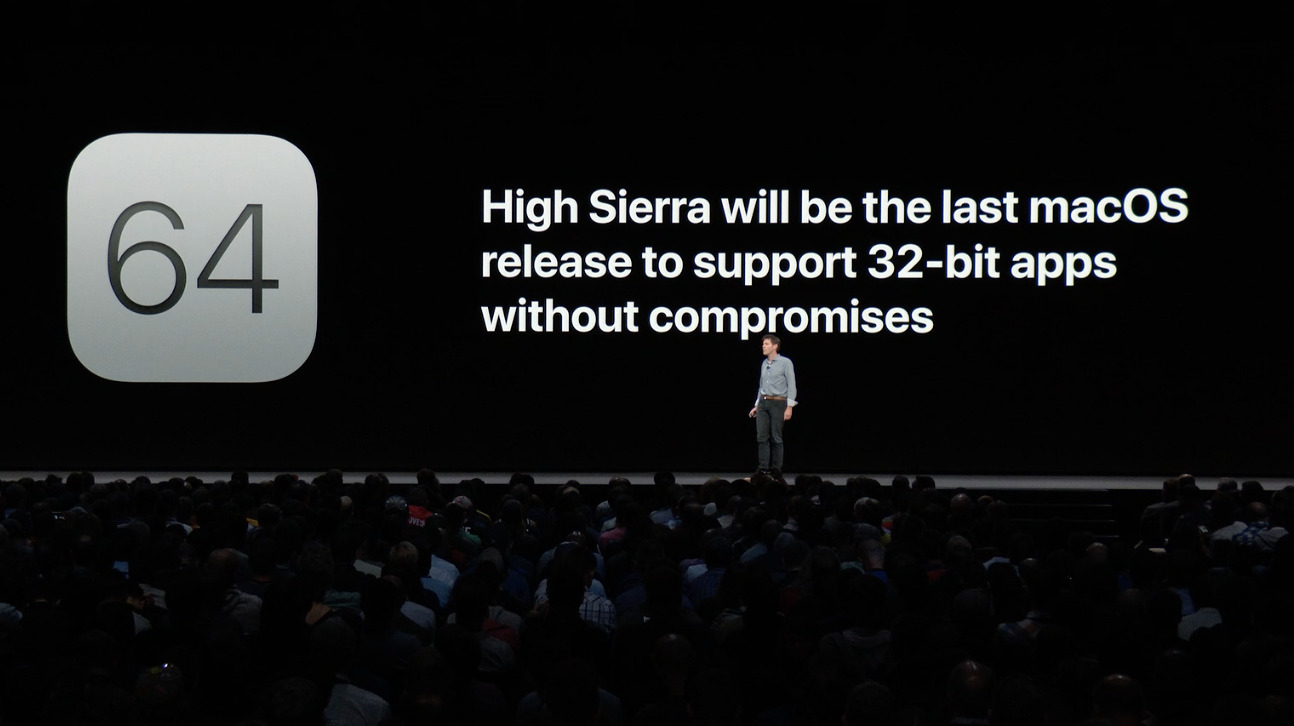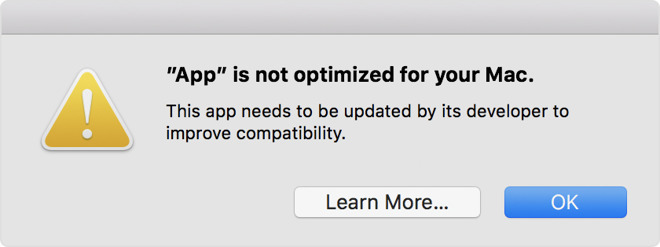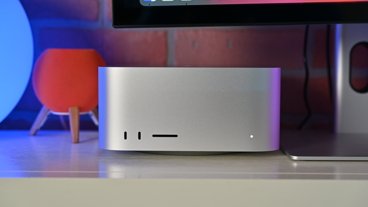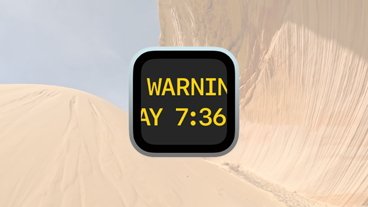The newest version of macOS will accelerate the phasing-out of 32-bit apps, Apple confirmed at WWDC on Monday, with Xcode 10 dropping support for the apps entirely.
At the WWDC State of the Union event, following the announcement of macOS Mojave (macOS 10.14) in the keynote earlier in the day, Apple vice president of software Sebastien Marineau revealed Mojave will be "the last release to support 32-bit at all."
"One of our key missions is always to push the Mac forward by extending its capabilities to take advantage of the latest technologies," Marineau advised. "As we push a platform forward, we sometimes have to deprecate legacy functionality to ensure that we're not holding it back."
This means the QuickTime framework, Java 1.6 Apple framework and Carbon HLTB will be removed.
Apple also said at WWDC Monday that the new and redesigned Xcode 10 will drop support for 32-bit macOS apps. Development of 64-bit apps will remain unaffected by the change.
Apple debuted 64-bit support with Mac OS Leopard in 2007, and has slowly been phasing out 32-bit in recent years.
High Sierra had been announced as the last macOS release to support 32-bit apps "without compromises," and in April, macOS users began receiving alerts that 32-bit apps were not optimized for the current operating system. The move continues Apple's long phase-out of those apps.
MacOS users can use this test to find which 32-bit applications are on their desktop.
Mojave, which was introduced by Apple's Craig Federighi in the main keynote Monday in San Jose, includes such new features as Dark Mode, enhanced privacy and Desktop Stacks.
 Stephen Silver
Stephen Silver









 Malcolm Owen
Malcolm Owen
 William Gallagher
William Gallagher



 Wesley Hilliard
Wesley Hilliard

 Christine McKee
Christine McKee




-m.jpg)




32 Comments
While the System Report shows quite few 32 bit apps on my Late 2013 iMac 14,2 the apps I use on a day to day basis are not among them. So far I have gotten only one dialog box like the one above and that was the Hallmark Greeting Card app. Time to do quite a bit of housecleaning.
As I am running Mojave now on my main Mac (yes full backed up), I've only found one app with an issue so far, Firestorm Viewer. So I made a second small partition on my Mac Pro Boot drive and installed Sierra for those that and a few apps I can see me needing for some time to come, not least of which is a Fujitsu Scansnap that refuses to use both High Sierra and Mojave. I was pleased to see the new Disk Utilities in Mojave is very comprehensive and allowed me to create an HFS+ partition on my APFS boot volume, I then used Carbon Copy Cloner to load the Sierra bootable system from a disk image I have stored (Apple's own Mac OS installation won't work for this as it reported it would prevent my Boot Camp from working). I also have VMWare Fusion VMs of every Intel Mac OS since it came out just for fun. VMWare still works fine in Mojave.
From a technical side and OS design standpoint, this is not necessary. The real reason for this is to push their agenda towards the new hardware. They are flirting with producing a non-Intel platform and this is designed to help make this a cleaner transition. Overall it's very disappointing to see this kind of action from Apple without being both more forthright or offering more options for its users. They can continue to offer uncompromised support even more simply than they did with PowerPC support as they previously did for a longer period of time since it's actually part of the hardware, especially for the "legacy" (ha ha) systems that will be around for many, many years to come.
About time! It has been 10+ years so it is hard to feel sorry for any developer or user that hasnt adapted yet. This could lead to far more efficient operating system behavior with the purging if 32 bit apps.
Now i have to wonder if they will finally upgrade Python on the platform.
Hmmm...Compressor and Steam are the ones that would annoy me to lose. Lego Mindstorms EV3 and Kindle somewhat less annoying but I expect at least Kindle to get updated when the time comes.